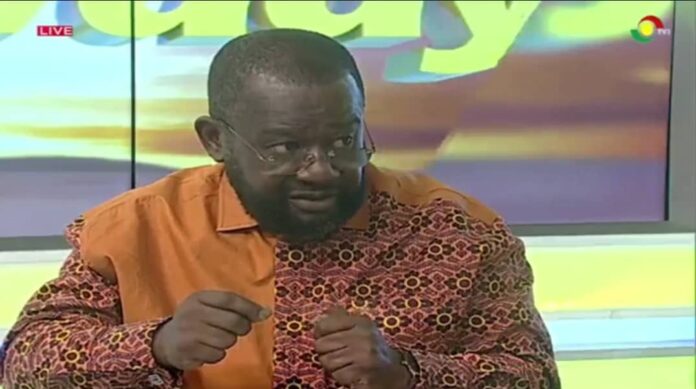Private legal practitioner Nana Kwame Jantuah has described the GHC1.00 energy sector levy introduced by the government as a “necessary evil” in tackling the challenges in Ghana’s energy sector.
He believes the issue should be addressed as a national concern, devoid of politics, considering the significant debt that needs to be settled in the energy sector to ensure a stable power supply.
Speaking on TV3’s BigIssue segment on NewDay Friday, June 6, 2025, the leading member of the Convention People’s Party (CPP) emphasised the need for a national discussion on the levy, rather than a politicised one.
“Should we not see it as a national issue and not bring the politics inside? Because we’ve been here before where dumsor is concerned. It’s a necessary evil, so far as I can see it,” he stated.
According to him, electricity generation is associated with costs, necessitating the introduction of the energy sector levy.
“It’s a necessary evil because the debts will mount, because where electricity is concerned, there are costs.”
He noted that the collections made by the power distribution company is not able to offset its cost, making it important to devise other means of making power available.
“We are not able to collect revenue enough to be able to use the cash wasterfall to pay the IPPs and pay for the debt that we have. We need money to be able to procure fuel. Why? We haven’t done exploration to production in 8 yeas so we have stranded gas. We do not have a gas refinery. If it was flowing, would it not go there?” he quizzed.
Kwame Jantuah was responding to the Minority in Parliament’s stance on the levy, which has warned of a series of actions against the passage if the government does not rescind the decision.
The passage of the Energy Sector Levy (Amendment) Bill, 2025, by Parliament on Tuesday, June 3, 2025 adds an additional GHC1.00 levy per litre of petroleum products, which the government says is expected to generate an additional 5.7 billion Ghana Cedis in revenue to help reduce energy sector debts and support stable power supply by curbing dumsor.
Finance Minister, Dr. Cassiel Ato Baah Forson, explained that Ghana’s energy sector debt currently stands at US$3.1 billion, and will require US$3.7 billion dollars to clear it.
According to him, an additional US$1.2 billion will be needed by the government to purchase fuel to power Ghana’s thermal power generation for the year 2025.
Meanwhile, the Finance Minister says the new tax does not mean consumers are going to pay extra money at the pump when purchasing fuel.
‘What is his solution?’ – Annoh-Dompreh grilled over Minority’s stance on Energy Sector Levy













